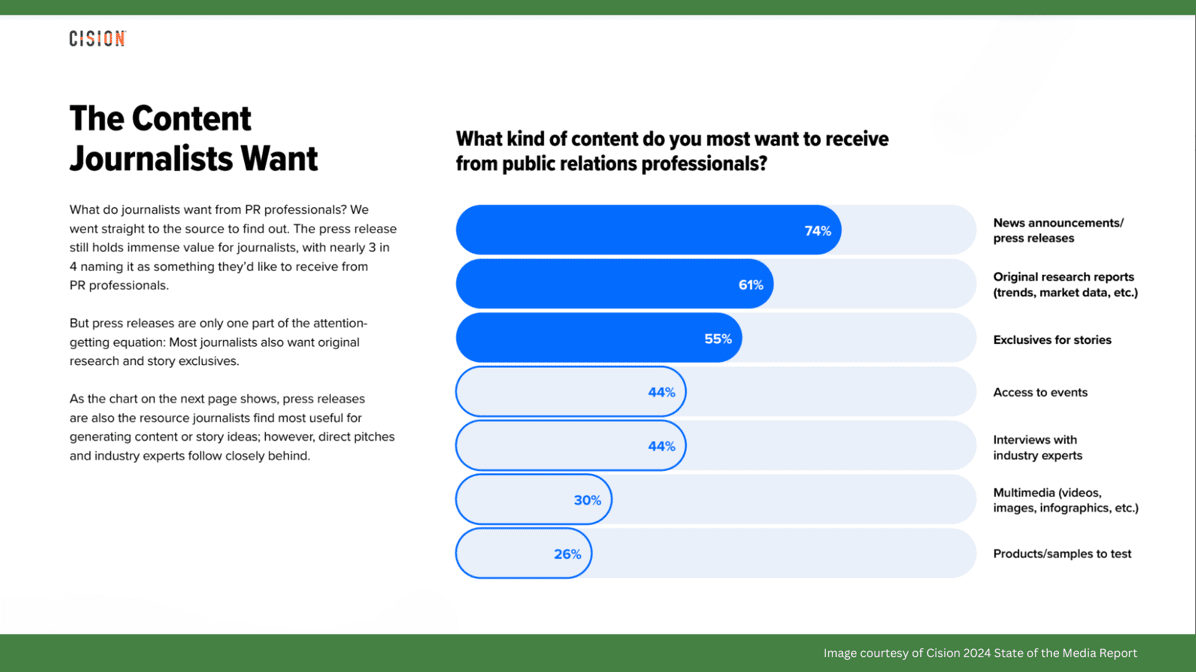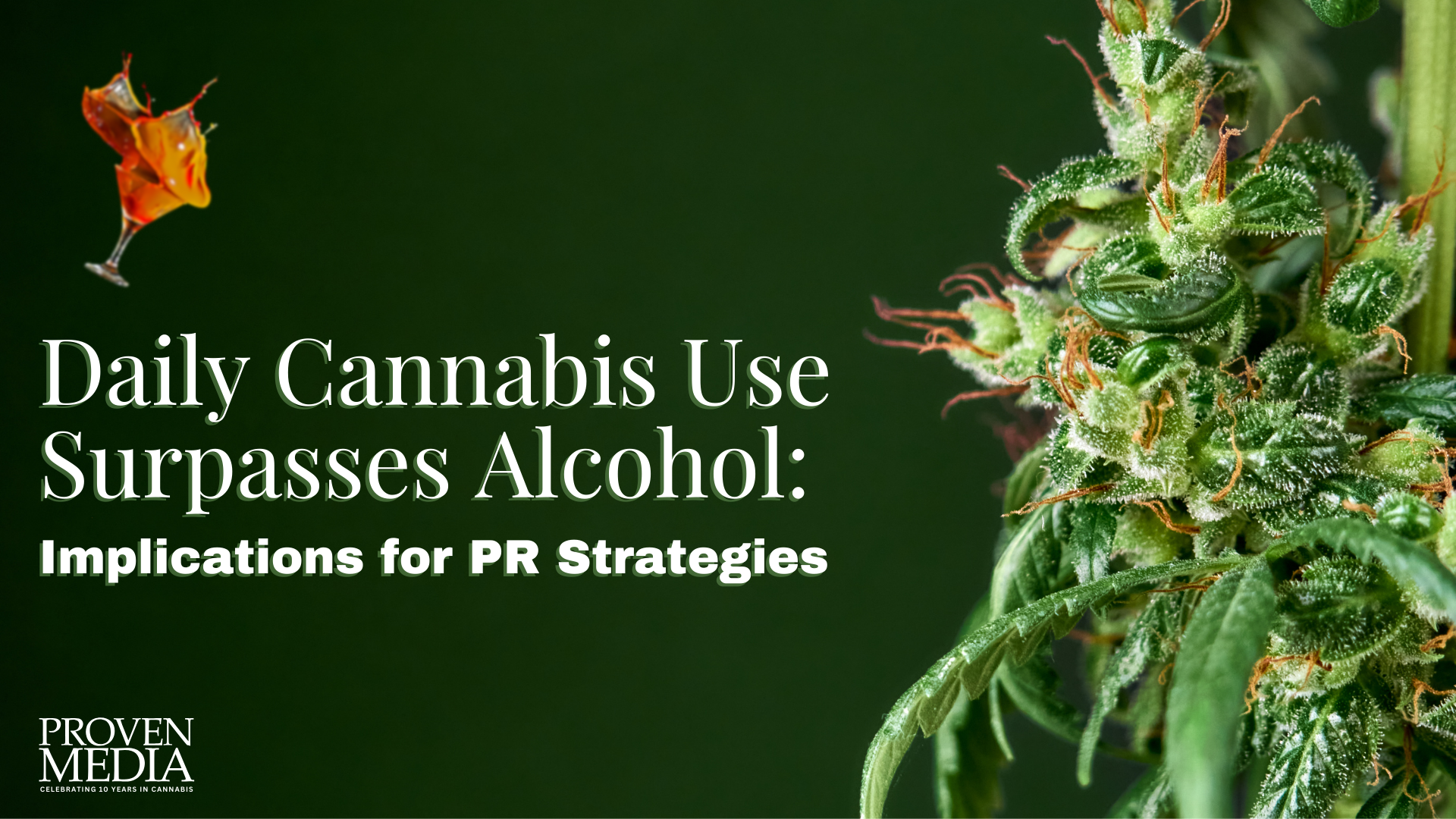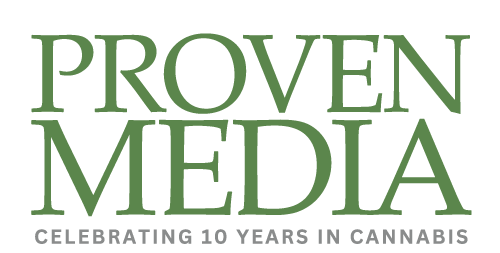It’s no secret that the COVID-19 pandemic impacted conferences across all industries and business sectors. Thankfully, due to the availability of vaccines, testing, and other preventative measures, industry conferences are making a comeback. As the agency of record for the annual Cannabis Marketing Summit, here at Proven Media we have a few tips on how to make the most out of your media relations efforts at your next industry conference.
The Importance of Industry Conferences
There are an estimated 7,426 tradeshows and conferences planned for 2022—up 11.8% from prior years, according to market research from Ibis World. Most media marketers (a whopping 97%!) cite that in-person events are crucial to their business, according to Bizzabo. Multiple statistics on the importance of industry conferences can be found here. The overall verdict? Industry conferences are often vital for business growth, marketing, and media relations.
Media Relations Tips for Conferences and Events
Industry conferences are great because journalists who specialize in covering that specific industry often attend to meet potential sources and gather story ideas. To help make your company stand out from the crowd, follow some of these media relations tips before, during and after the conference.
Before and During the Conference:
- Do your homework. Don’t leave connecting with the media at your next industry event to chance. Ask your conference coordinator for a list of journalists who might be in attendance—there’s often at least a working list—and ask your PR and marketing team to prepare a media kit that you can hand out. Print multiple copies—it’s better to have too little than too many! Also be sure to have plenty of business cards on hand and ask for business cards too. Pro tip: Make sure whoever’s business card you are passing out knows that members of the media might be in touch eventually and to respond ASAP.
- Prepare any talking points or story angles. The downside of industry conferences is that you’re there with other businesses who do what you do or something similar—meaning that journalists have multiple similar sources to choose from. So, what makes you stand out? Have a brainstorming session with your team ahead of time and don’t be afraid to write out ideas and keep them with you. Be casual and just use them as needed—really, this is about meeting journalists face to face and networking.
- “No” is a complete sentence. If you do have a chance to discuss story angles or pitches with journalists (sometimes conferences have a special event or happy hour for just that), respect a journalist’s position if they decline your pitch. It is not personal to you or your business—journalists are busy and pitched a lot—and even a “no” might still be a great chance to foster a relationship or you can connect down the road on another story idea.
- Use social media to your advantage. Whether you manage your company’s social media or have a dedicated staff member, be sure to follow and tag journalists who you meet. Some platforms that are especially good for this are Twitter and LinkedIn. This helps journalists to feel seen and know that you’re becoming familiar with their work.
- Be personable and confident. Like all networking events, have a firm handshake, look attending journalists in the eyes, and ask about what they’re working on. Make sure you come across as an expert and resource.
- Take relevant notes. Whether it’s quick on your phone or a piece of paper behind your booth, jot down some notes about the journalists you meet. What do they cover? How do they like story ideas pitched to them? Who is the best person to follow up? What’s their social media handles? Can you add them to a media list? Things like that you’re bound to forget in the hustle and bustle of conferences.
After The Conference:
- Breathe and de-brief. Conferences can be a whirlwind. After you’ve returned to your normal workday, take a moment to go through the media contacts you’ve collected and de-brief with your PR or marketing team. We suggest a meeting specifically about the media members you met: Who will reach out? How did conversations go? Etc. Be honest with yourself and your team. For example, if a member of the media said they don’t take pitches via e-mail, don’t call them. And have one team member in charge of keeping in touch—you don’t want one journalist hearing from multiple members of your team.
- Reach out – but with purpose. The average journalist receives dozens to hundreds of pitches daily depending on their beat and media market. So, be sure not to waste their time. A quick e-mail saying how you enjoyed meeting them, how you can help with future stories, and confirming you’d love to work together is all that’s needed. Pro tip: Do not add them to any media or e-mail list without their permission via e-mail or verbally given at a conference.
- Play the long game. If they don’t respond to your e-mail, don’t be offended. They’re busy and likely working on other stories. Do however follow their professional profiles on social media to keep updated on what they’re working on and pitch them stories that are relevant to their beat. (Journalists will often post their need for story sources directly to social media.) Pro tip: Don’t spam them, ever.
Just like you, journalists have a job to do and want to do it to the best, most efficient way possible. Like all connections made at networking and industry conferences, it’s about being an ongoing, valued resource to them. Strike this balance and you’ll have a connection in the media industry who might cover your company when it’s the right time.
Interested in learning how to handle media relations during conference season or any time of year? Contact the Proven Media team today.






